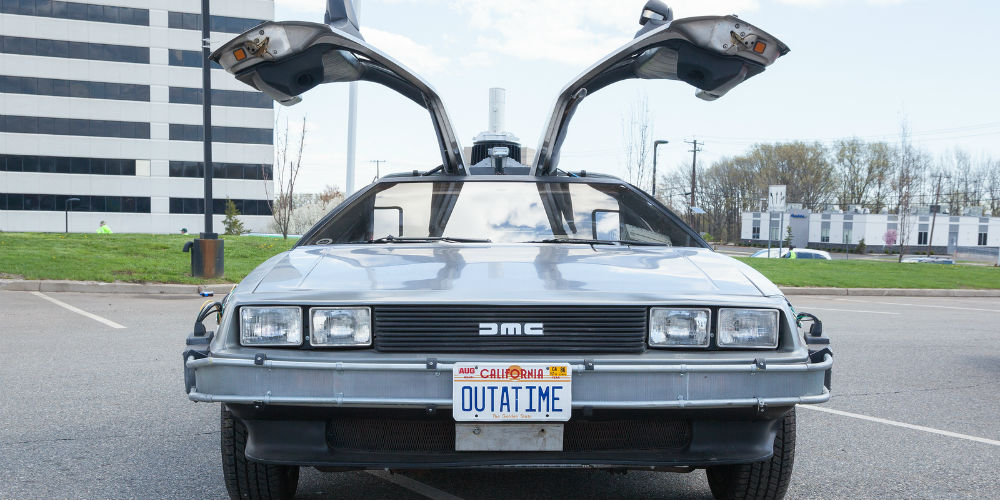Roads? Where we’re going we don’t need roads

A young credit union executive is reviewing the day’s calendar, swiping the integrated holograms projecting from the dash of her self-driving vehicle. She closes out a popup ad for a new, contactless gaming implant (her son had begged for the same one that very morning). She reviews loan documents, records a coaching session, and signs off on a vendor contract after a few neurons light up. Her branches have transitioned fully to the Internet of Things (IoT) where 99% of services are digitalized. The credit union’s members have artificial intelligence (AI) based bots that interact with the credit union’s own member service bots, the communications of which are indiscernible from live people. The year is 2050.
Seems a little out there, right? But to think that barely two decades ago, marketing dollars rarely touched digital investments, social media was in its infancy, and TV and radio were choice one when it came to advertising. Even in the last few years we’ve seen dramatic changes in how we market, where we market, and who we market to. Tech developments and vicissitudes in human behavior and response continue to paint a fascinating picture of what might be.
I love to imagine. So, here are a few imaginations on what might be in the year 2050:
- Technology dominates society. AI, smart assistants, and augmented and virtual reality (VR) are commonplace in most if not every consumer experience.
- AI marketing platforms are nearing capability of content creation for all purposes, in the blink of an eye.
- VR-based content marketing is leveraged by nearly every industry, including finance. Customers and members have the ability to try before they buy i.e., virtual test drive their customized car, walk through their home pre-construction, view finances pre and post credit changes, and more.
- The metaverse is integrated into practically everything we do.
- IoT dominates private homes, communications, entertainment, travel, and healthcare.
- Small businesses are almost non-existent – the wealthiest brands control all communications platforms.
- What was once a popular way of creating a start-up or ecommerce solution is no longer financially feasible.
- Advertising is offered fully in realistic, three-dimensional viewing, with technological advances in holograms and photography – brain interface advertising is not so science fiction.
- The consumer is experiencing some 25,000+ ads daily.
- Humanistic messaging that grabs consumer’s attention in less than a nanosecond is normal practice – people will know value proposition instantaneously.
- Tactile sensation advertising, including smell and touch, are prominent.
- Location-based marketing is widely used, but already becoming outdated.
- You are accurately targeted in every space and activity in your life, but memories, thoughts, and even your dreams are targeted.
- Emotional intelligence and humanistic fluencies are considered specialty skills, extensively taught in all leadership development programs and at exorbitant training costs.
- Tech ethical and privacy regulations outweigh Reg Z elements – there is legislation now that protects the consumer’s intellectual holdings.
- Staple tasks like paying bills, daily finance, grocery shopping, car maintenance, etc. are handled exclusively by AI-based bots.
- Social networks are still prevalent, but look and feel very different. They’re integrated into everything we do and have become almost indistinguishable from everything else.
OK, ok, so maybe some of these ideas are a little far-fetched if not nuts. I have trouble believing I might one day see a Pepsi ad in my dreams. Although, there are folks out there who are actively researching many of the items on this list. Elon Musk’s Neuralink, for example, is working on brain interfacing as we speak. There are likely solutions yet to be discovered that our minds are currently unable to comprehend.
Clearly there’s no finite way to know what credit union marketing will look like in 28 years, but we with a little creativity and a little planning, we can prepare some. Remember, Hannah Barbara had the Jetsons video streaming with one another years before you and I could. But also remember too that what works splendidly now may be obsolete without notice.
Ultimately, it’s good practice to account for tomorrow when strategizing for today. Not because we can always predict the future with certainty, but because tomorrow will be here before we know it.

